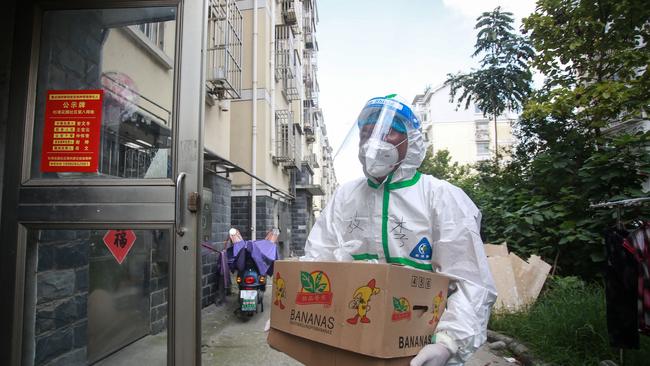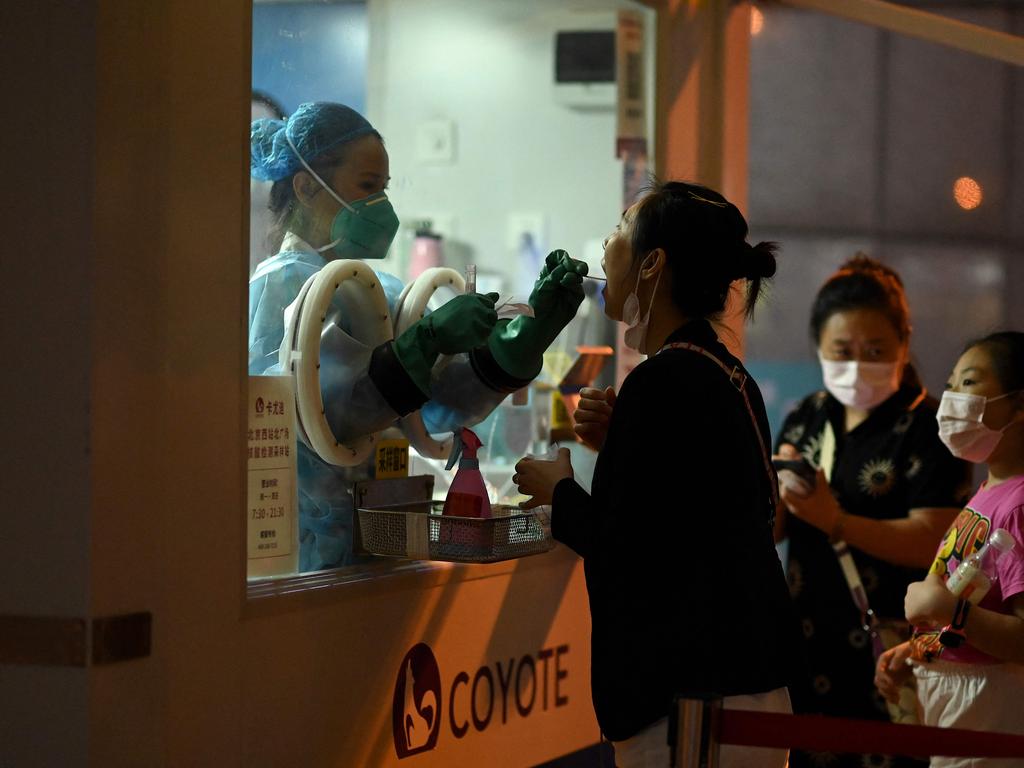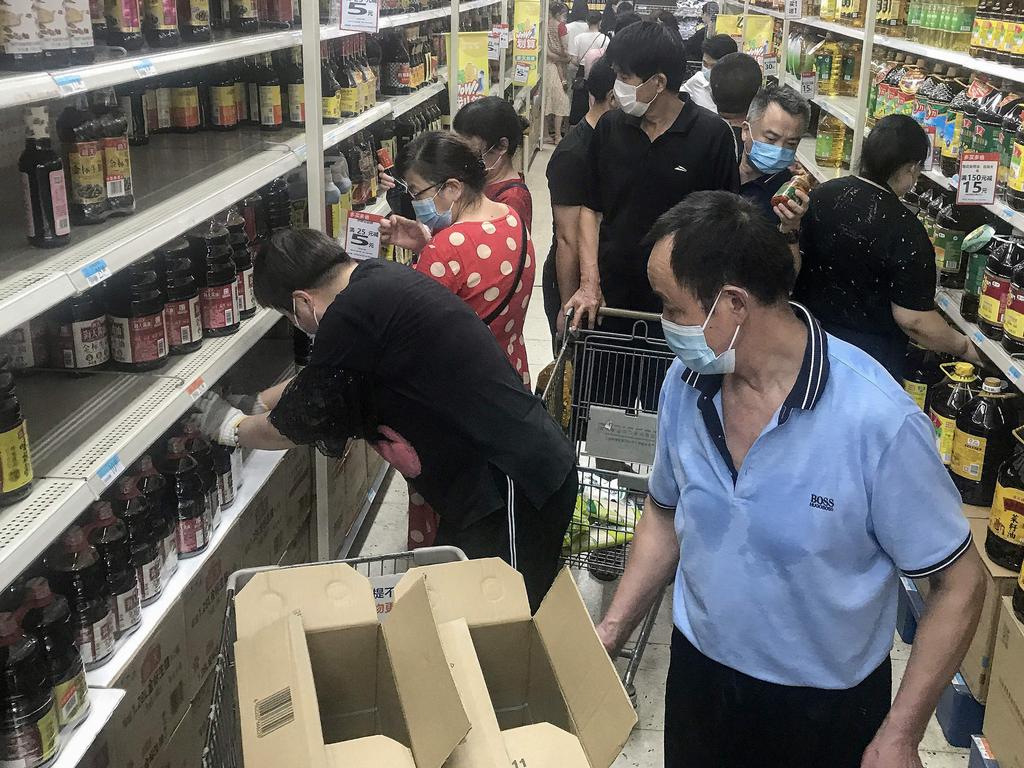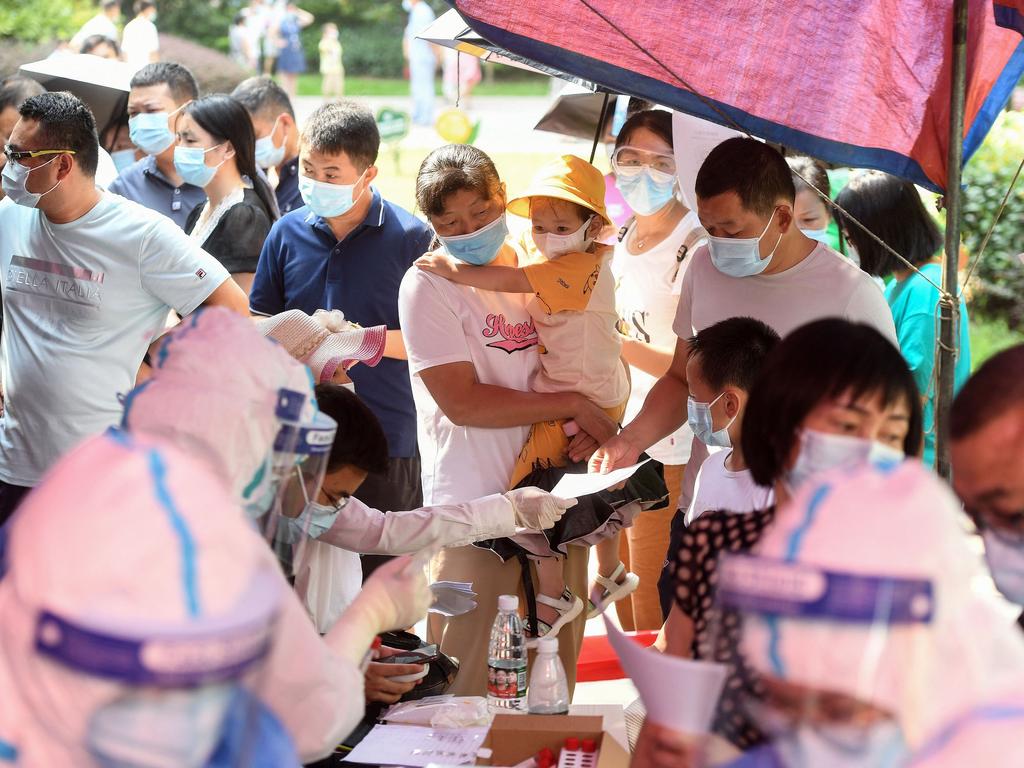Covid outbreak may force China to abandon zero-tolerance approach
China has long trumpeted its success in stamping out Covid at home as proof of its superiority over the West. Now its claims are being tested.

China has long trumpeted its success in stamping out coronavirus cases at home and distributing vaccines abroad as proof of its superiority over the West.
Now those claims are coming under unprecedented scrutiny as Beijing scrambles to contain China’s worst outbreak for more than a year by placing millions under lockdown and ordering mass testing in cities with infections.
As in many other countries the highly transmissible Delta variant has up-ended previous calculations.
For the first time some Chinese public health experts are suggesting that the country may need to contemplate a dramatic shift in its approach: away from “zero tolerance” of infections and towards a “living with Covid” strategy.
The new wave has deepened existing doubts about the effectiveness of Chinese vaccines against new variants even as President Xi Jinping last week announced that China would supply two billion doses of its vaccines for global use, the latest broadside in an aggressive vaccine diplomacy campaign.
The new outbreak is understood to have started with the arrival of a passenger with the Delta variant on a flight from Russia in the eastern city of Nanjing on July 10. It was spread by aircraft cleaners who were infected after a breakdown in safety protocols. By yesterday, there had been more than 1,500 new confirmed cases since mid-July - and hundreds more asymptomatic ones, which China does not include in tallies.
Although numbers remain low by international standards, 17 of 31 provinces have recorded cases. Among the cities affected are Beijing, Shanghai and, in its first infections since May last year, Wuhan, the original centre of the pandemic. The return of the coronavirus to the city where the first known Covid-19 patients fell ill in late 2019 prompted panic-buying of essentials from a population that has endured the world’s toughest lockdown.
Zhang Wenhong, a government epidemiologist widely regarded as China’s most trusted Covid-19 voice, said that the current outbreak should be “food for thought for the future of our pandemic response”.
“The world needs to learn how to coexist with this virus,” Zhang wrote on his social media Weibo platform, where he has three million followers. “What is really difficult is whether we can have the wisdom to coexist with the pandemic in the long run.”
Chinese officials had been unnerved by the rapid advance of the variant through southeast Asia where Chinese vaccines have been widely used but overall vaccination rates remain low.
In contrast, China, which has a population of 1.4 billion, has administered 1.75 billion doses. The authorities have not disclosed what proportion of eligible people are fully vaccinated but it is thought to be more than 60 per cent.
However, the efficacy of its main vaccines, Sinovac and Sinopharm, remains unclear, not least as the authorities, renowned for their obsession with secrecy, have not released the results of final-phase clinical studies.
Thailand, Indonesia, Malaysia and the Philippines all relied heavily on Sinovac or Sinopharm when they launched their vaccination programs, but have either phased them out or are mixing them with second doses or boosters (third doses) of the Pfizer-BioNTech or Moderna jabs.
“Beijing’s contribution of doses will play a significant role in mitigating the vaccine gap between the developing and developed world,” said Yanzhong Huang, a Chinese public health expert at the Council on Foreign Relations in New York. “But questions about the efficacy cast a shadow over its vaccine diplomacy.”
China also faces a dilemma about how to proceed domestically. “Beijing has talked a lot about how its approach has demonstrated the superiority of China over the West,” Huang told The Sunday Times. “It will be difficult to switch to a strategy they have been trashing, but perhaps they are preparing the ground.”
Confronted by the new wave of cases, health officials have noted that the first Delta outbreak in May in Guangzhou was contained using the familiar “zero T” approach. Transmission was stopped in a month, with about 200 cases and no deaths. Disease controls must now “be even faster, more firm, stricter, more expansive and ready”, said He Qinghua, of the National Health Commission’s Disease Prevention and Control Bureau.
Beijing will be intent on trying to avoid outbreaks before its home Winter Olympics, which open in less than six months.







To join the conversation, please log in. Don't have an account? Register
Join the conversation, you are commenting as Logout